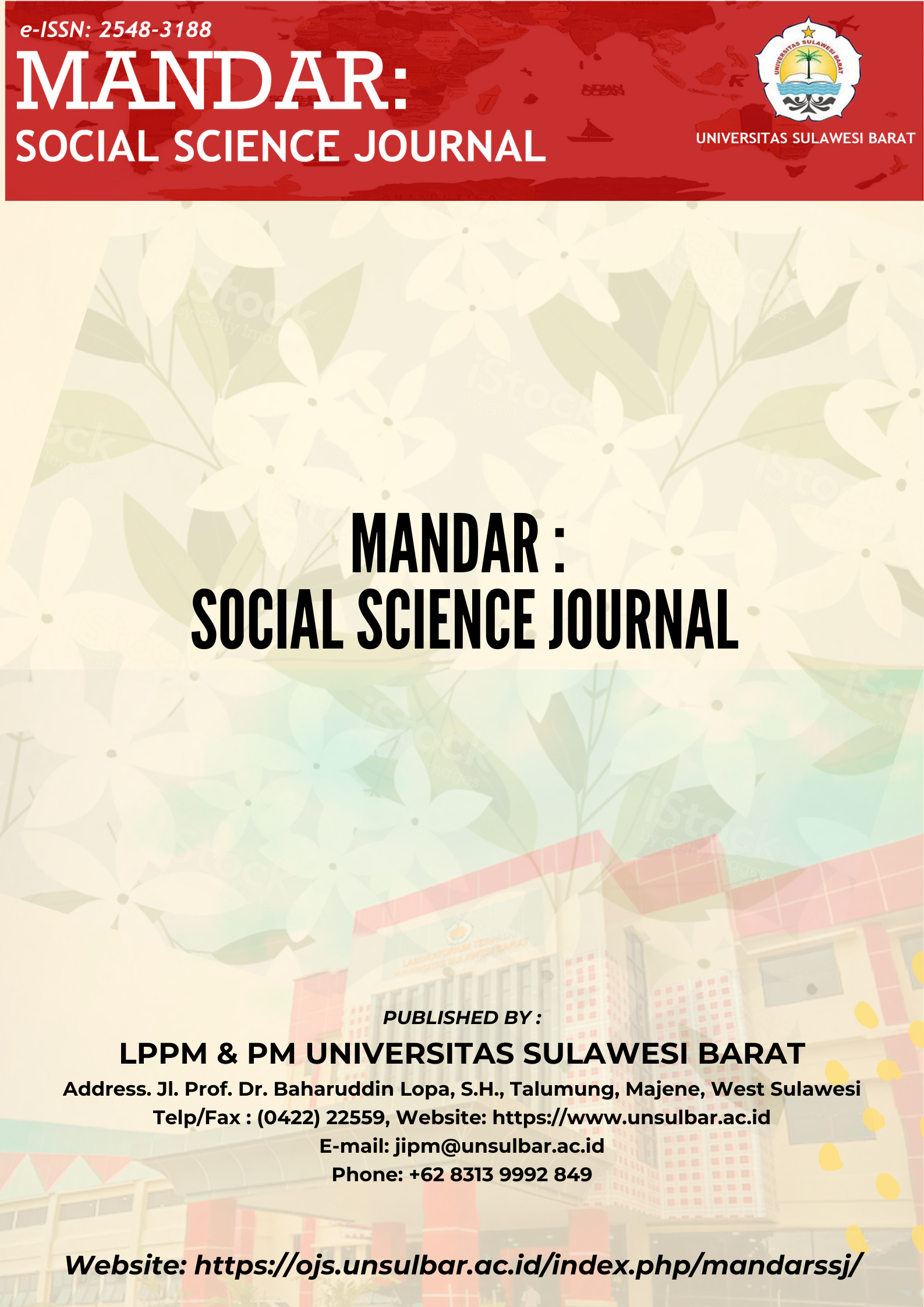Main Article Content
Abstract
This study aims to find out and analyze Masdar and Mengga's political rivalry as a political institution and the level of rivalry between the Masdar Clan and the Mengga Clan in the Polewali Mandar elections. This research uses the concept of political behavior, elite theory, conflict theory and the concept of rivalry. Type of qualitative research with descriptive type of analysis. Determination of informants was done purposively. Data collection is done through interviews and literature reviews. The results of the study show that the classy image possessed by Masdar and Mengga is influenced by their role in a political institution, which in turn leads to the similarity of his personality as a public actor that has an effect on the conflict of positions that are considered important, the background to make the Family and family Different views in terms of politics. The political rivalry that occurred between the Masdar and Menggga families was temporal because the two families still maintained a kinship relationship by maintaining the emotional connection between the two and each had no intention to be hostile.
Keywords
Article Details
Authors who publish their manuscripts in this Journal agree to the following conditions:
- Copyright in each article belongs to the Universitas Sulawesi Barat (Copyright ©)
- The author acknowledges that this journal has the right to publish articles with the copyright holder to Universitas Sulawesi Barat.
- It is prohibited by law to copy or duplicate part or all of the contents of articles in this journal in any way and in any form and is prohibited from distributing the articles either electronically or printed without written permission from the Mandar Social Science Journal
References
- Arifin, Rahman. Sistem Politik Indonesia Dalam Perspektif Struktural Fungsional. Surabaya: SIC, 2002.
- Antonius, P Sitepu , 2012, Teori-Teori Politik, Yogyakarta: Graha Ilmu
- Arikonto, Suharsimi, Prosedur Penelitian Suatu Pendekatan Praktek, Jakarta : PT. Rineka Cipta, 2002, Cet.XII
- Bagus Wirawan, Ida. Teori-Teori Sosial. Jakarta: Gramdedia Pustaka Utama, 2012.
- Banru, M Thalib, Biografi Kolonel Purnawirawan S. Mengga dari Gurilla sampai Bupati, Makassar : Tanahindie Press, 2011
- Budiarjo Miriam, 2008, Dasar- Dasar Ilmu Politik, Edisi Revisi, Jakarta: PT. Gramedia Pustaka Utama
- Bottomor TB, Elit dan Masyarakat, Jakarta : Akbar Tanjung Institute 1966
- Duverger, Maurice. Sosiologi Politik. Jakarta: Rajawali Press, 1982.
- Fisher, Simon. Mengelola Konflik: Ketrampilan & Strategi Untuk Bertindak. Jakarta: The British Council, 2001.
- Nas, Jayadi. Konflik Elit Di Sulawesi Selatan: Analisis Pemerintahan Dan Politik Lokal. Jakarta: Yayasan Massaile dan LEPHAS, 2007
- Prasetya, Irawan, Penelitian Kualitatif dan Kuantitatif untuk ilmu-ilmu sosial, Jakarta : DIA FISIP UI, 2007 Irawan Prasetya, Penelitian Kualitatif dan Kuantitatif untuk ilmu-ilmu sosial, Jakarta : DIA FISIP UI, 2007
- Rauf, Maswadi. Konsensus Politik: Sebuah Penjejakan Teoritis. Jakarta: Direktorat Jenderal Pendidikan Tinggi, 2000.
- Santoso, Slamet. Dinamika Kelompok. Jakarta: Bumi Aksara, 1999
- Fadillah Ulandari, Muhammad Amirul Haq, Hasrat Arief Saleh, Government: Jurnal Ilmu Pemerintahan Universitas Hasanuddin, Volume 7, Nomor 1, Januari 2014, Analisis Peran Keluarga Masdar Pasmar dalam Birokrasi Pemerintahan di Kabupaten Polewali Mandar
- Haryanto, Klanisasi Demokrasi (Politik Klan Qahhar Mudzakkar di Sulawesi Selatan) Yogykarta : Polgom, 2014

